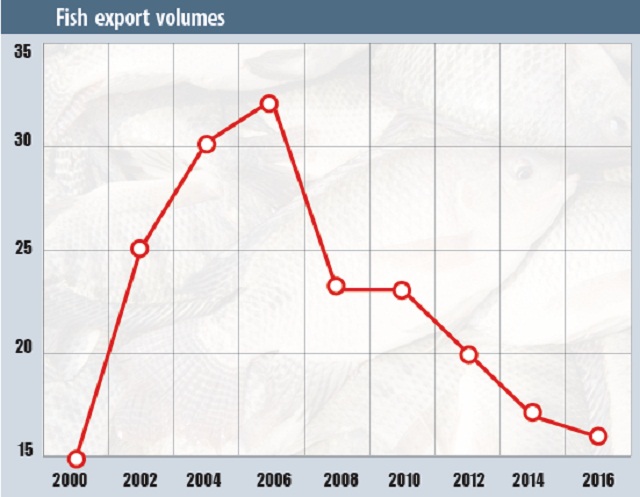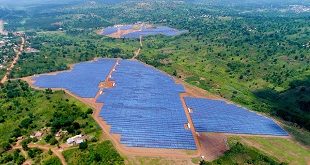
UPDF deployment cited in the reduction in illegal fishing
Kamapla, Uganda | ISAAC KHISA | Fish lovers can now enjoy the succulent white flesh of Nile Perch or Tilapia from Lake Victoria as the stocks recovers since the Uganda People’s Defence Forces under the Fisheries Protection Unit began policing the water ten months ago to control illegal fishing.
President Yoweri Museveni deployed UPDF on the lake in response to complaints by stakeholders – including fish catchers, processors, traders and government officials – that fish stocks in the lake were declining at an alarming rate, and the once thriving agricultural sub-sector would be no more if this remained un-checked.
This follows disbandment of fisheries officers and Beach Management Units (BMU) over illegal fishing, extortion and aiding other illegal dealers to trade in immature fish in 2015.
Whereas concrete proof of this new measure will only be available upon completion of an assessment of fish stocks in the lake by fisheries research institutes of Uganda, Tanzania and Kenya, which share the lake and collected data in September, this year, to ascertain the quantity of fish in the lake, The Independent’s investigation reveals some good news.
From Masese Fish Landing site in Jinja, 80 km east of Kampala, to Ggaba Fish Landing Site in Kampala, from Kasenyi Fish Landing Site in Entebbe to Bukakata Landing Site that connects Masaka and Kalangala Districts, fish harvests are said to have more than tripled since February this year, compared to the period prior to deployment of the UPDF on Lake Victoria.
For instance, Kasenyi Fish Landing Site has seen fish harvests increase from eight tonnes to 30 tonnes per day, according to the Site’s management records while harvests originating from Kalangala District via Bukakata Landing Site has seen fish harvests increase from less than two tonnes to more than eight tonnes per day during the same period under review citing increase in mature fish catches.
At Masese Fish Landing Site, fish harvests have increased from about 250kgs per day to one tonne (1,000 kgs) for those destined to the local markets, whereas those destined to processing factories had tripled to four tonnes per day over the past ten months compared with the periods prior to last February, according to Michael Aliru, a tax officer attached to the fish sub-sector at the Jinja Municipa Council.
A similar trend is reported at Ggaba Fish Landing Site, which has seen catch for Nile Perch increase from 330 kg prior to the UPDF deployment in Lake Victoria to 660 kgs per day at the moment.
Consequently, fish prices to processing firms have dropped by more than 50% to Shs7, 500 per kilogramme, with fishermen citing a glut.
Edward Rukuunya, the commissioner for fisheries in the Ministry of Agriculture, Animal Industry and Fisheries (MAAIF), confirmed to The Independent that indeed fish stocks had increased in the past ten months, attributing this to intensive fighting of illegal fishing on Lake Victoria.
Illegal fishing in Uganda currently involves using less than 5 inch fishing nets for Tilapia and less than 7 inch fishing nets for Nile Perch that results into the harvesting of immature fish that measures less than 11 inch and 20 inch in length, respectively. It also entails using fishing boats that are less than 20 feet in length and with absence of lifer jackets.

“Reports from fishing communities show that fish stocks have improved but I cannot authoritatively say that I have data on the fish stocks at the moment,” Rukuunya said, “A study that was carried out on the fish stocks by the three countries that share the lake is yet to be completed.”
Capt. Nathan Abaho, the UPDF officer in charge of operations on the lake in Kalangala District told The Independent that they have observed an increase in mature fish catches during the period, due to a crackdown on catchers, dealers and exporters of illegal fish, mainly to Democratic Republic of Congo, Rwanda and South Sudan.
 The Independent Uganda: You get the Truth we Pay the Price
The Independent Uganda: You get the Truth we Pay the Price


